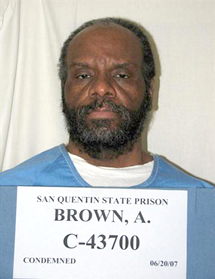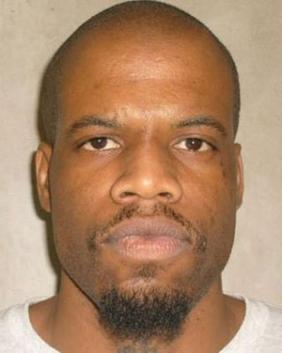Related Research Articles

Sodium thiopental, also known as Sodium Pentothal, thiopental, thiopentone, or Trapanal, is a rapid-onset short-acting barbiturate general anesthetic. It is the thiobarbiturate analog of pentobarbital, and an analog of thiobarbital. Sodium thiopental was a core medicine in the World Health Organization's List of Essential Medicines, but was supplanted by propofol. Despite this, thiopental is listed as an acceptable alternative to propofol, depending on local availability and cost of these agents. It was previously the first of three drugs administered during most lethal injections in the United States, but the US manufacturer Hospira stopped manufacturing the drug in 2011 and the European Union banned the export of the drug for this purpose. Although thiopental abuse carries a dependency risk, its recreational use is rare.

Lethal injection is the practice of injecting one or more drugs into a person for the express purpose of causing rapid death. The main application for this procedure is capital punishment, but the term may also be applied in a broader sense to include euthanasia and other forms of suicide. The drugs cause the person to become unconscious, stops their breathing, and causes a heart arrhythmia, in that order.

In the United States, capital punishment is a legal penalty throughout the country at the federal level, in 27 states, and in American Samoa. It is also a legal penalty for some military offenses. Capital punishment has been abolished in 23 states and in the federal capital, Washington, D.C. It is usually applied for only the most serious crimes, such as aggravated murder. Although it is a legal penalty in 27 states, 20 states currently have the ability to execute death sentences, with the other seven, as well as the federal government, being subject to different types of moratoriums.

Capital punishment is a legal penalty in the U.S. state of Ohio, although all executions have been suspended indefinitely by Governor Mike DeWine until a replacement for lethal injection is chosen by the Ohio General Assembly. The last execution in the state was in July 2018, when Robert J. Van Hook was executed via lethal injection for murder.
Capital punishment is a legal penalty in the U.S. state of Nebraska. In 2015, the state legislature voted to repeal the death penalty, overriding governor Pete Ricketts' veto. However, a petition drive secured enough signatures to suspend the repeal until a public vote. In the November 2016 general election, voters rejected the repeal measure, preserving capital punishment in the state. Nebraska currently has 12 inmates on death row.
Capital punishment is a legal penalty in the U.S. state of Oklahoma.
Pentobarbital (US) or pentobarbitone is a short-acting barbiturate typically used as a sedative, a preanesthetic, and to control convulsions in emergencies. It can also be used for short-term treatment of insomnia but has been largely replaced by the benzodiazepine family of drugs.
Kenneth Biros was an American convicted murderer who was sentenced to death and executed for the aggravated murder, attempted rape, aggravated robbery and felonious sexual penetration of a young woman. Biros was the first condemned person to be executed by lethal injection in the United States with the use of a single drug, setting a Guinness World Record.
Baze v. Rees, 553 U.S. 35 (2008), is a decision by the United States Supreme Court, which upheld the constitutionality of a particular method of lethal injection used for capital punishment.

Opened in 1969, Georgia Diagnostic and Classification Prison (GDCP) is a Georgia Department of Corrections prison for men in unincorporated Butts County, Georgia, near Jackson. The prison holds the state execution chamber. The execution equipment was moved to the prison in June 1980, with the first execution in the facility occurring on December 15, 1983. The prison houses the male death row, while female death row inmates reside in Arrendale State Prison.

Albert Greenwood Brown Jr. is an American murderer and rapist who has been convicted of sexual molestation with force of a minor, two counts of first-degree rape with force, and the first degree murder of a teen girl in Riverside, California.

John David Duty was an American who was executed in Oklahoma for first-degree murder. According to the Oklahoma Department of Corrections, he was the first person in the United States to have been put to death with pentobarbital. A nationwide shortage of sodium thiopental led the state to incorporate the substitution into its protocol for lethal injections. Duty's case gained media attention because pentobarbital had typically been used to euthanize animals.
Capital punishment is a legal penalty in the U.S. state of Arizona. After the execution of Joseph Wood in 2014, executions were temporarily suspended but resumed in 2022. On January 23, 2023, newly inaugurated governor Katie Hobbs ordered a review of death penalty protocols and in light of that, newly inaugurated attorney general Kris Mayes issued a hold on any executions in the state.

The death of Clayton Derrell Lockett occurred on April 29, 2014, when he suffered a heart attack during an execution by lethal injection in the U.S. state of Oklahoma. Lockett, aged 38, was convicted in 2000 of murder, rape, and kidnapping.

Carey Dean Moore was a convicted murderer, executed by lethal injection by the state of Nebraska. It was the first execution in Nebraska using lethal injection, and the state's first execution since 1997. The execution was the first in the United States to use fentanyl.
Bucklew v. Precythe, 587 U.S. ___ (2019), was a United States Supreme Court case regarding the standards for challenging methods of capital punishment under the Eighth Amendment to the United States Constitution. In a 5–4 decision, the Court held that when a convict sentenced to death challenges the State's method of execution due to claims of excessive pain, the convict must show that other alternative methods of execution exist and clearly demonstrate they would cause less pain than the state-determined one. The Court's opinion emphasized the precedential force of its prior decisions in Baze v. Rees and Glossip v. Gross.

The execution of John Grant took place in the U.S. state of Oklahoma by means of lethal injection. Grant was sentenced to death for the 1998 murder of prison cafeteria worker Gay Carter.

A euthanasia solution is a drug-containing aqueous solution for intentionally ending life to either relieve pain and suffering or execute convicts. The drugs used in euthanasia solution do not only need to be safe to personnel, but they also need to have a rapid onset of action and minimize the possible pain felt by humans and animals. To satisfy these requirements, the active ingredients in the euthanasia solution are usually anaesthetics, respiratory depressants, cardiotoxic drugs and cytotoxic drugs.
Clarence Wayne Dixon was an American convicted murderer. He was convicted of the January 7, 1978, murder of 21-year-old Deana Lynne Bowdoin in Tempe, Arizona. The murder went unsolved until 2001, when DNA profiling linked him to the crime. Dixon, who was serving a life sentence for a 1986 sexual assault conviction, was found guilty of Bowdoin's murder and was formally sentenced to death on January 24, 2008. He was executed by lethal injection on May 11, 2022, in the state's first execution in nearly eight years, since the botched execution of Joseph Wood in 2014.
References
- ↑ "Arizona convicted killer's last words: 'Boomer Sooner'". CNN . October 27, 2010.
- ↑ Schwartz, John (27 October 2010). "Murderer Executed in Arizona". The New York Times .
- ↑ "Jeffrey Timothy Landrigan, A.k.a. Billy Patrick Wayne Hill, Petitioner-appellant, v. Terry Stewart, Director, Arizona Department of Corrections, Respondent-appellee, 272 F.3d 1221 (9th Cir. 2001)". Justia Law. Retrieved 2022-04-19.
- 1 2 Murder of Chester Dean Dyer, clarkprosecutor.org, accessed May 7, 2014.
- ↑ "US execution drug not banned for export: EU". EUbusiness.com. October 28, 2010. Retrieved November 9, 2010.
- ↑ EU Council Regulation (EU) No 1352/2011; accessed May 7, 2014.
- ↑ "Drug sold in UK to be used for execution in Georgia", BBC News, January 14, 2011.
- ↑ "US lethal injection drug faces UK export restrictions", BBC News, November 29, 2010.
- ↑ UK government web site: Controls on Torture Goods; accessed September 10, 2021.